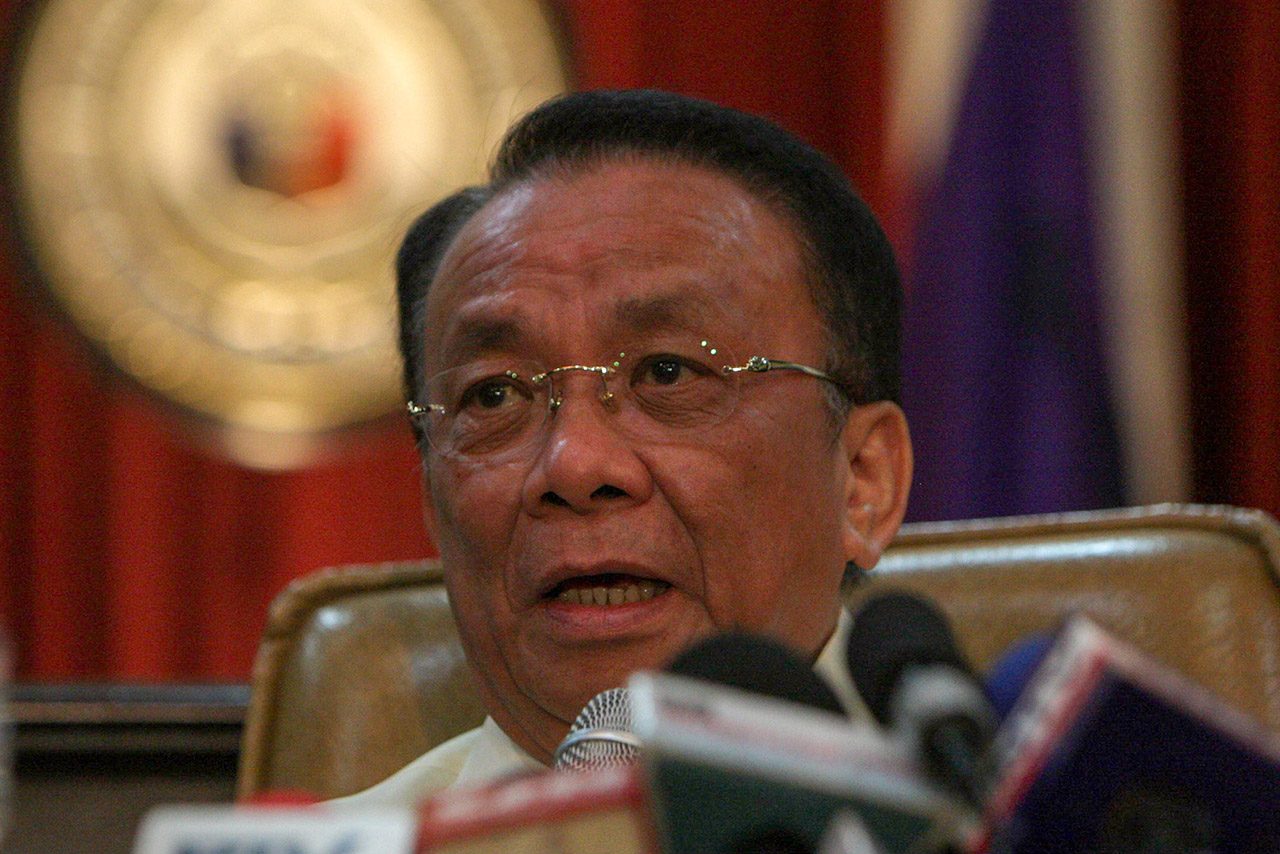SUMMARY
This is AI generated summarization, which may have errors. For context, always refer to the full article.

MANILA, Philippines – “I hate to disappoint you, the government is often better in the arguments than the other side,” said newly-appointed Chief Justice Lucas Bersamin on Wednesday, November 28, to a reporter’s question about his independence.
Rappler’s review of the 34 most high-profile en banc decisions in the last 12 years shows Bersamin tended to favor the executive branch or the politicians.
In the aftermath of his appointment, graphics of his voting record flooded social media showing him voting for all of President Rodrigo Duterte’s interest cases, including upholding martial law in Mindanao.
Bersamin would like to explain himself this way: if independence means always voting against the government, then he hates to disappoint.
“You know the government is represented by the Office of the Solicitor General when it comes to issues raised in the Supreme Court. There are also many cases where the government loses, and yet you do not call that independence,” said Bersamin in his first press conference as a Chief Justice.
Perhaps the two cases where the government lost on merit in his view was former president Benigno Aquino III’s Disbursement Acceleration Program (DAP), parts of which were declared unconstitutional by the Court in the ruling penned by Bersamin himself.
Bersamin also concurred in the decision that declared the Priority Development Assistance Fund (PDAF) illegal. (READ: By 2022, Supreme Court filled with Duterte appointees)
Judicial restraint
“Many will probably not believe that I do not know the President, and he does not know me also,” said Bersamin, in his attempt to dispel doubts about his independence that also taint the biggest promotion in his 32-year career.
But Bersamin’s voting record is worthy of the President’s attention. He had been vocal about his support for executive discretion, saying once during martial law oral arguments that the 1987 Constitution does not sufficiently address present-day threats to safety. He voted twice to uphold Duterte’s martial law.
Asked on Wednesday what his reaction is to Duterte’s statement about creating a death squad to target rebel communists, Bersamin said: “Well I guess I will trust the government to do its job.”
The question was if the existence of a death squad violates the 1987 Constitution. On that, Bersamin said he cannot speculate on an issue that has not even reached the Supreme Court yet, but in general the chief magistrate said “death squads are a matter of perspective.”
“Maybe there was some encounter, we cannot be the judge of that, because it’s the people on the ground who made that judgment on the necessity for the measures taken,” said Bersamin.
“But if you believe that there is an excessive use of violence by state agents, you can always run after them,” he added.
This philosophy is called judicial restraint. Under this concept, the Supreme Court, a non-elective body, is advised not to supersede the elected officials’ policies, which are seen as being representative of the will of the people who elected them.
“I am more on the side of restraint. Why? Because I happen to believe the 3 branches should work together, and the 3 branches should respect each other’s boundaries,” Bersamin said.
Judicial restraint, and its opposite, judicial activism, are important continuing debates because watchdogs like to ensure that the High Court doesn’t revert to a Marcos Court, which was accused of enabling the Marcos dictatorship and the human rights violations that resulted from it.
“I would also like to see myself as a judicial activist in some respect, maybe that could be in the area of environment or human rights,” said Bersamin, who concurred in the decision to give a hero’s burial to the late dictator Ferdinand Marcos.
He added: “But as far as issues regarding government actions are concerned, if there is a presumption of validity in favor of the executive action or legislative action, then I am on the side of judicial restraint.”
Bersamin will be Chief Justice until October 2019 at a time where the High Court is tackling major issues like the constitutionality of the war on drugs, the Philippine withdrawal from the International Criminal Court, and the vice presidential electoral protest between Ferdinand “Bongbong” Marcos Jr and Vice President Leni Robredo.
Data has shown that a Chief Justice can have an effect on how other justices in his circle vote.
Where will Bersamin take the SC?
The Chief Justice has this to say: “My voting record is there. Sometimes I join the decision against the government, sometimes I go in favor of the government, but in either times I am doing it in the best light that I was given by God. So as far as the law is concerned, I was independent.” – Rappler.com
Add a comment
How does this make you feel?
There are no comments yet. Add your comment to start the conversation.